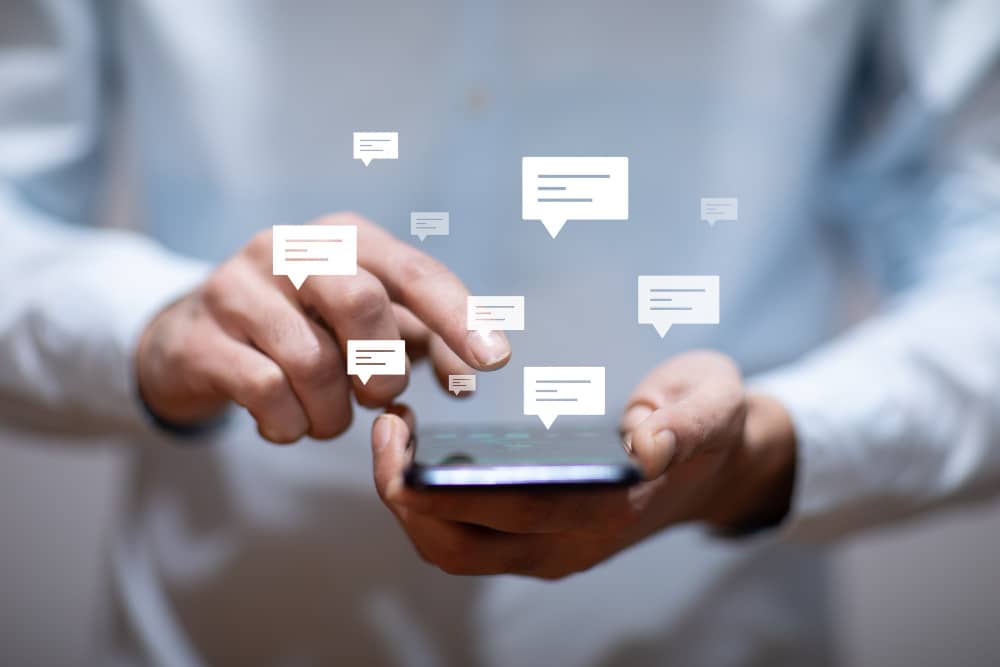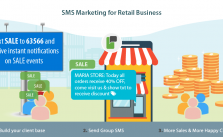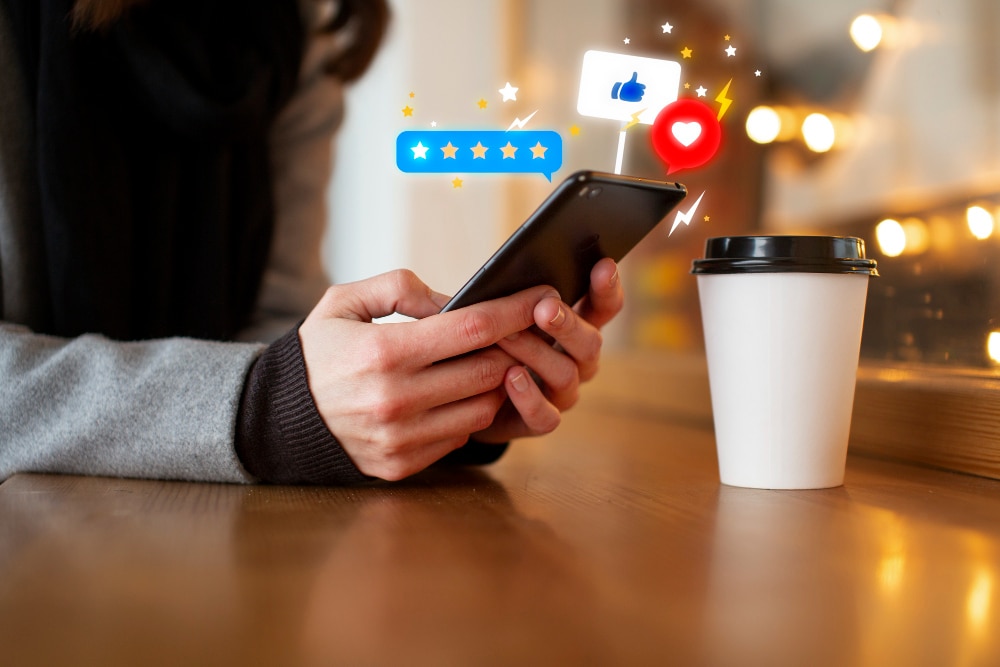Table of Contents
SMS marketing offers a direct line to customers, making it an effective tool for engagement and conversion. But with so many types of SMS marketing campaigns available, how do you know which one is performing the best?
This blog post explores the top-performing types of SMS marketing and provides insights on leveraging them for maximum impact.
Introduction to SMS Marketing
SMS (Short Message Service) marketing is a powerful tool businesses use to engage customers through text messages on their mobile phones. It offers a direct and immediate way to communicate promotions, updates, and important information to a targeted audience.
Importance of SMS Marketing:
High Open Rates: SMS messages have an incredibly high open rate, with studies showing that over 90% of text messages are opened within minutes of receipt. This makes SMS marketing an effective way to ensure your audience sees your message.
Instant Delivery: Unlike email marketing or traditional advertising, which may take time to reach recipients, SMS messages are delivered instantly. This allows businesses to communicate time-sensitive information or promotions quickly and efficiently.
Increased Engagement: SMS messages have been shown to generate higher engagement levels than other marketing channels. With the average person checking their phone dozens of times a day, SMS marketing provides an opportunity to connect with customers in a personal and immediate way.

Effectiveness as a Marketing Tool:
Direct Communication: SMS marketing allows businesses to communicate directly with their customers, bypassing intermediaries such as social media algorithms or email spam filters. This direct line of communication can lead to higher response rates and increased customer engagement.
Targeted Messaging: With SMS marketing, businesses can segment their audience and send targeted messages based on demographics, past purchase behavior, or location. This allows for more personalized and relevant messaging, resulting in higher conversion rates.
Cost-Effective: SMS marketing is often more cost-effective than other forms of marketing, such as print advertising or direct mail campaigns. With low per-message costs and no printing or postage expenses, businesses can reach a large audience at a fraction of the cost of traditional marketing methods.
The 7 Types of SMS That Brands Can Use for Marketing Purposes
By utilizing the following types of SMS, brands can effectively communicate with their customers, enhance their marketing efforts, and ultimately drive business growth. Let’s dive in.
Promotions
Promotional SMS messages are a marketing staple. They inform customers about sales, special offers, and new products.
- Sales Alerts: Notify customers about upcoming sales or limited-time discounts. These messages create urgency and drive immediate action.
- Exclusive Offers: Send exclusive deals to your SMS subscribers. This makes them feel valued and encourages loyalty.
- New Product Launches: Announce new arrivals or product launches. This keeps your audience informed and excited.
Promotional SMS campaigns are highly effective because they can reach customers instantly and directly.
Coupon Codes
Coupon codes sent via SMS can significantly boost sales and customer engagement.
- Discount Codes: Give customers unique discount codes for their next purchase. This can increase sales and repeat business.
- Limited-Time Offers: Send time-sensitive coupon codes to create urgency. Customers are more likely to act quickly to take advantage of these deals.
- Personalized Discounts: Tailor coupon codes to individual customer preferences. Personalization increases the likelihood of redemption.
Coupons are a powerful incentive that can drive both traffic and conversions.
Contests
Giveaways and contests via SMS engage customers and expand your reach.
- Entry via Text: Customers can enter contests by sending a keyword to a short code. This simplifies participation and increases engagement.
- Instant Win: Offer instant win opportunities where customers find out immediately if they have won. This adds excitement and encourages participation.
- Referral Contests: Encourage customers to refer friends for additional entries. This helps grow your subscriber list organically.
Contests create buzz around your brand and can attract new customers.

Transactional Messages
This provides important information about customer transactions.
- Order Confirmations: Send confirmation messages when an order is placed. This reassures customers that their order is being processed.
- Shipping Updates: Inform customers about the status of their shipments. This reduces anxiety and improves the customer experience.
- Delivery Notifications: Notify customers when their order has been delivered. This ensures they are aware of the status of their order.
Transactional messages enhance customer trust and satisfaction by keeping them informed.
Status Updates
Keep customers updated with important information through status updates.
- Appointment Reminders: Send reminders for upcoming appointments. This reduces no-shows and helps keep your schedule on track.
- Service Updates: Inform customers about service changes or maintenance schedules. This is crucial for businesses like utilities or internet providers.
- Event Notifications: Update attendees on event details, such as time changes or cancellations. This ensures smooth communication and attendance.
Status updates help maintain clear and effective communication with your customers.
Service Alerts
In most cases, service alerts are essential for time-sensitive information.
- Emergency Notifications: Send urgent alerts in case of emergencies, such as severe weather or safety issues. This is particularly useful for schools and community services.
- System Outages: Inform customers about system outages and expected resolution times. This helps manage expectations and reduce frustration.
- Maintenance Alerts: Notify customers about scheduled maintenance that might affect them. This keeps them prepared and reduces inconvenience.
Service alerts ensure customers are always in the loop with critical information.
Geo-Triggered Messages
Geo-triggered messages use location data to send relevant offers and information.
- Local Promotions: Send promotions when customers are near your store. This can drive foot traffic and increase sales.
- Event Reminders: Remind customers about events happening near their location. This encourages attendance and participation.
- Personalized Recommendations: Provide recommendations based on the customer’s location. This adds a personal touch and improves engagement.
Implementing SMS Marketing Strategies
Implementing these SMS marketing strategies effectively requires a combination of best practices and thoughtful execution. Here are some tips to maximize the impact of your SMS campaigns:
- Audience Segmentation: Divide your audience into distinct groups based on demographics, past purchase behavior, and their level of engagement. This approach enables you to deliver more tailored and relevant messages to each segment.
- Optimal Timing: Be mindful of when you send your messages. Avoid dispatching them too early in the morning or too late at night. Instead, choose times when your audience is more likely to be attentive and responsive.
- Clear Opt-In Process: Ensure you have a clear and compliant opt-in process. Customers should explicitly agree to receive messages and understand what they are signing up for.
- Opt-Out Mechanism: Always provide an easy and clear way for customers to opt out. This will keep you compliant with regulations and build trust with your audience.
- Consistent Branding: Keep your messaging consistent with your brand’s voice and style. This helps in building brand recognition and trust.
- Concise Messaging: Given SMS’s character limit, make sure your messages are succinct and to the point. Every word should add value.
- Engaging Content: Use engaging and dynamic content, such as emojis, links to rich media, and personalized elements, to make your messages more appealing.
By following these best practices, you can enhance the effectiveness of your SMS marketing campaigns.
Measuring Success
Measuring their success is crucial to ensure your SMS marketing strategies are effective. Here are some key metrics to track:
- Open Rates: While SMS open rates are generally high, tracking this metric helps you understand the reach of your messages.
- Click-Through Rates (CTR): Measure the percentage of recipients who click on links in your messages. This indicates the level of engagement.
- Conversion Rates: Track how many recipients take the desired action, such as purchasing or signing up for an event. This helps you gauge the effectiveness of your campaigns.
- Opt-Out Rates: Monitor the number of subscribers who opt out after receiving your messages. A high opt-out rate could indicate that your messages are too frequent or irrelevant.
- Customer Feedback: Gather feedback from your subscribers to understand their preferences and improve your messaging strategy.
Analyzing these metrics helps you refine your approach and achieve better results.
Future Trends in SMS Marketing
The landscape of SMS marketing is constantly evolving. Staying ahead of these trends can give your business a competitive edge. Here are some trends to watch:
- Integration with AI: Artificial intelligence will play a significant role in personalizing SMS campaigns. AI can analyze customer data to send more targeted messages.
- Rich Communication Services (RCS): RCS will enable richer interactions, including multimedia messages, interactive buttons, and more engaging content.
- Omnichannel Marketing: Integrating SMS with other marketing channels, such as email, social media, and push notifications, will create a seamless customer experience.
- Data Privacy and Compliance: With increasing focus on data privacy, ensuring compliance with regulations like GDPR and CCPA will be more critical than ever.
- Automation: Automating SMS campaigns will allow for timely and relevant messages based on customer behavior and preferences.
Embracing these trends will help you stay ahead in the competitive world of SMS marketing.

Final Thoughts!
In conclusion, the best-performing types of SMS marketing include promotions, coupon codes, contests, transactional messages, status updates, service alerts, and geo-triggered messages. Each type offers unique benefits and can drive significant engagement and conversions properly.
By understanding and utilizing these SMS marketing strategies, businesses can enhance communication, build stronger customer relationships, and achieve greater success.
Embrace these best-performing SMS marketing strategies to connect with your audience in meaningful and impactful ways. With the right approach, SMS marketing can be a powerful tool in your marketing arsenal.






